What are digital skills?

Digital information
In terms of mindset, this is about understanding online informative contexts and knowing how to evaluate and interpret them, for example by recognising fake news based on the source, and contextualising information with a critical eye. In terms of knowledge, it’s about knowing how to organise and manage online information.

Digital Content
In terms of mindset, this is about recognising the peculiarities of digital content. What distinguishes a video, an info graphic, podcast, live broadcast or a social media story at the perceptual level? How do the algorithms used to manage flows of online and social media content behave, and why? In terms of knowledge, it’s about elaborating and developing native digital content, perhaps as a content curator or content creator.

Digital Data
In terms of mindset, it’s about understanding the implications of digital data for people and for business. To what extent and where does the accumulation and use of certain types of digital data impact my business, my competitors and my industry? In terms of knowledge, it’s about knowing how to read and interpret data flows and most importantly, knowing how to extract value from data we possess or may come into contact with.

Digital Empathy
In terms of awareness, this is about understanding the dynamics behind online interaction and listening, in terms of knowing what to do (strongly connected to knowing how to be, depending on circumstances): acting, reacting and interacting in many-to-many communication contexts in which the boundary between public and private is tenuous and can disappear at any time, and where the key skill is knowing how to listen and empathise with other people.

Cyber Security
In terms of mindset, this is about knowing the risks involved with online security, knowing how and why to protect our data and those of other people, while protecting the privacy and reputations of individuals, teams and companies. In terms of knowledge, it’s about using the right tools to work safely in an online environment.
Digital Skills Map
For maximum personalisation, we need to know our client, their market and the players involved. The output is a skills map covering specific profiles, strengths and areas for improvement as well as tips on self-learning. Often, it’s also a useful way to analyse the way people communicate and interact on social media. Here, we can use another type of map: the social behavioural map, which investigates the behaviours of certain people in a social media context.
Custom digital skills training
The great thing about these entry-level or advanced courses on digital skills, is that they are put together in each case on the basis of the customer’s requirements—these may depend on the point in history, the industry, certain issues or opportunities. The courses are heavily based on continuous interaction and group work – both for the in-person courses and the online training. Finally, the focus is always on getting the participants to enjoy the experience, drawing on the Newton culture which has always embraced edutainment in all its forms.
Digital Community Building
In many companies, communities of people are springing up, bringing together people linked by specific interests and objectives: these may include social ambassadors, sustainability advocates, and allies for diversity, equity and inclusion. Newton has 20 years’ experience in combining the “healthy” and effective growth of groups of employees in pathways that integrate digital skills within enjoyable, intriguing activities. These may include continuous training, digital events, expert guest speakers, and interesting formats designed to keep enthusiasm and motivation high.
Training and coaching for online communication, digital reputation and content creation
Whether it’s a course addressing dozens of people, team coaching in small groups or one-to-one, all Newton courses start with the aptitude of the individual. Everybody is different. People tend to use social media according to their personality. It can be futile, and harmful, to ask everybody to “behave like an influencer”. If anything, it’s more interesting to understand how the unique qualities of one individual can be utilised while respecting the person’s intentions.